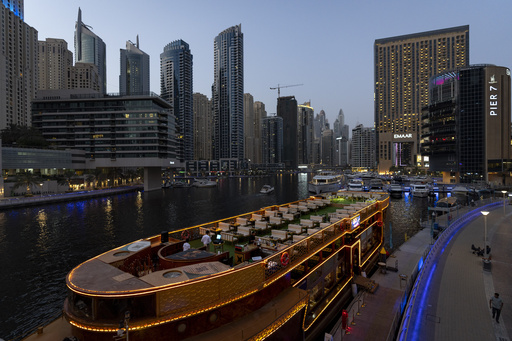Dubai continues to thrive amidst regional unrest, with its economy flourishing due to a surge in tourism and construction. The emirate has emerged as a safe haven for the ultra-wealthy seeking stability, low taxes, and a welcoming visa system in tumultuous times across the Middle East. This is not the first time Dubai has capitalized on crises, having also benefited during the COVID-19 pandemic and Russia’s invasion of Ukraine.
Demand in Dubai’s real estate market is soaring, with luxurious properties reaching unprecedented valuations despite challenges like historic flooding. Emaar Properties, a major player in the city’s skyline, reported a significant increase in sales, reaching $8.1 billion in the first half of the year. Real estate consultancy ValuStrat noted a staggering 38% rise in upscale villa prices, exceeding $2.7 million on average.
High-end property brokerage firms like Pat & Co. have witnessed a substantial surge in demand for luxury properties. Dubai International Airport, the world’s busiest for international travel, welcomed a record-breaking 44.9 million travelers in the first half of the year, with plans to transition operations to a new airport worth nearly $35 billion in the coming years.
Despite the growth, concerns about a potential oversupply in the housing market loom over Dubai’s success. Analysts predict that the market could face a slowdown in the mid-2020s as construction projects initiated in 2021 reach completion, potentially surpassing demand levels. Over 6,000 housing units have already been completed in the first half of the year, with expectations to finish an additional 20,000 by year-end.
While some experts caution about a possible market slowdown in the future due to oversupply, others maintain a positive outlook, noting that current construction rates are being met with significant buyer interest. The continued growth in Dubai’s economy and real estate market has positioned the emirate as a beacon of prosperity in a region overshadowed by conflict and uncertainty.


